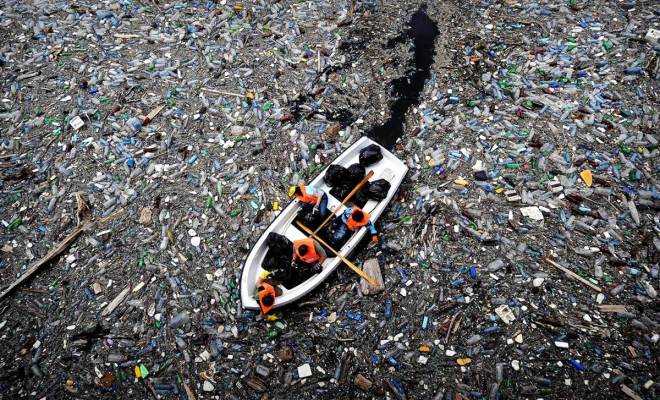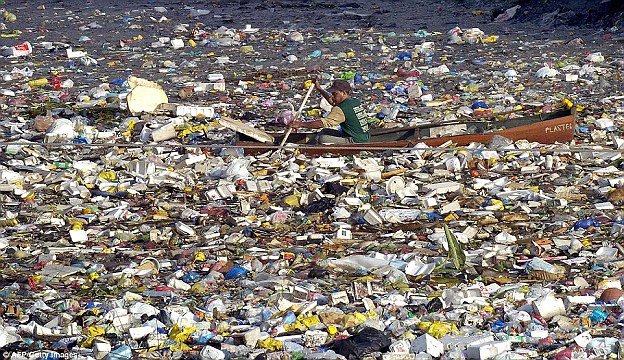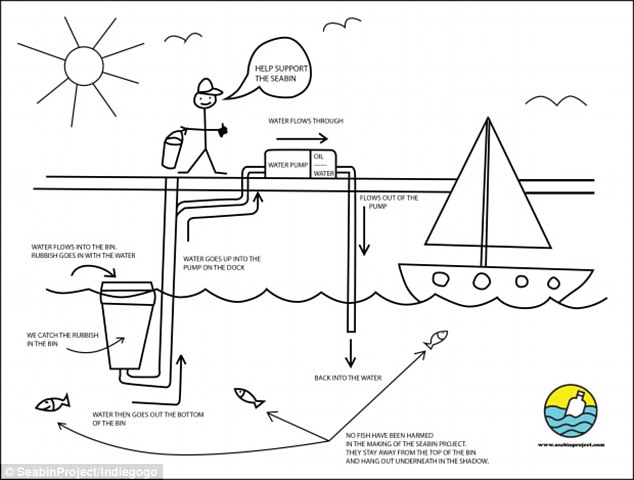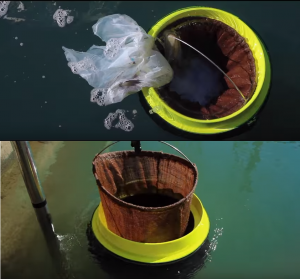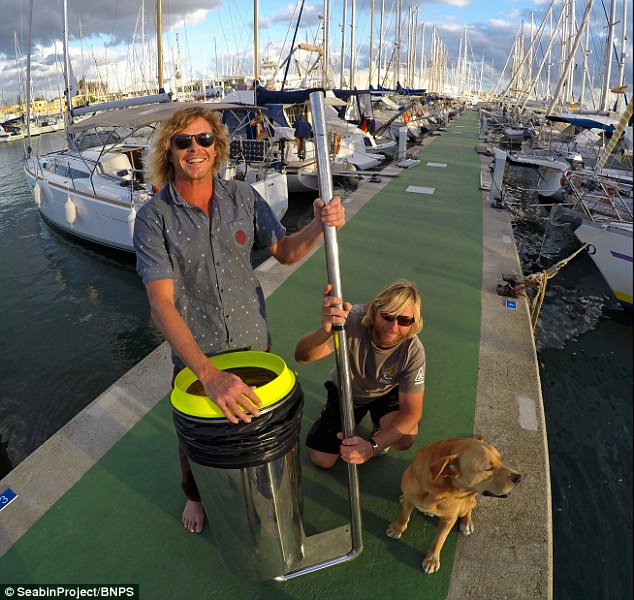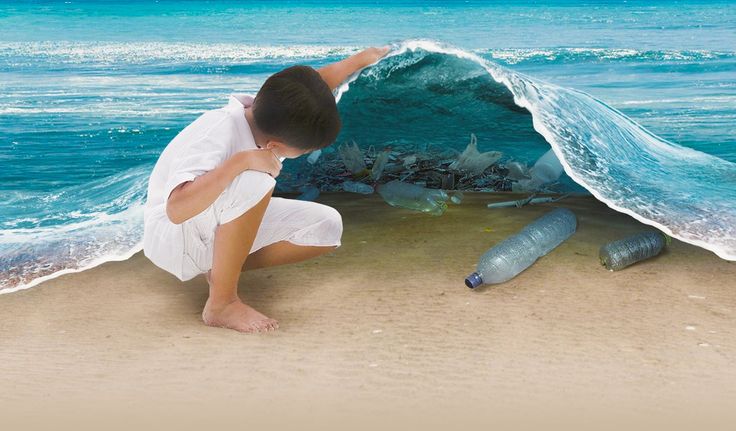The ocean is filled with eight million tonnes of rubbish – enough to fill five carrier bags for every foot of coastline on the planet. But a new invention could tackle this problem, one port at a time. A pair of surfers from Perth, Australia, has invented a ‘floating bin’ that automatically sucks rubbish floating on the water into it like a vacuum cleaner. The automated rubbish bin has been designed to catch floating rubbish, oil, fuel and detergents. It can be used at floating docks in the water of marinas, private pontoons, inland waterways, residential lakes, harbours, water ways, ports and yacht clubs. The Sea Bin can even be fitted to super yachts and motor yachts!
A perfectly working prototype has been developed and this is how it works. The Seabin is situated at the waters surface and is plumbed into a shore based water pump on the dock. The water gets sucked into the Seabin bringing all floating debris and floating liquids into the Seabin. The floating debris is caught inside the Seabin and the water then flows out through the bottom of the bin and up into the pump on the dock. The water then flows through the pump where we have the option of installing an oil/water separator and clean water then flows back into the ocean. This process is constant, operating 24 hours a day, 7 days a week, 365 days a year. Inside the Seabin there is a natural fiber “catch bag” which collects all the floating debris. When this is full or near to full, the marina worker simply changes the catch bag with another one. The collected debris is then disposed of responsibly, the catch bag cleaned and now it is ready to swap again for the full one in the still operating Seabin.
The size of the Seabin and catch bag has been designed for safe working load for one person to safely change the catch bag. If the Seabin is full it still works. The flow of the water simply pulls all the surrounding floating debris against the Seabin and keeps it there. The marina worker would simply scoop up the surrounding debris and then change the catch bag as normal.
Watch how it works: https://youtu.be/UDgut1DK8BQ
For more information, visit http://www.seabinproject.com/
Waves for days. Trash for eternity. The ocean’s a plastic soup.
What are we doing about it? What are you doing about it?
Surf photographer Zak Noyle captures Indonesian surfer Dede Surinaya catching a wave in a remote yet garbage covered bay in Java, Indonesia, the world’s most populated island.


